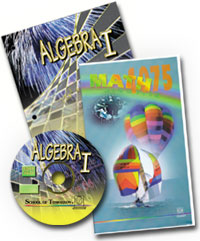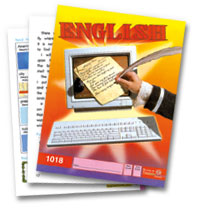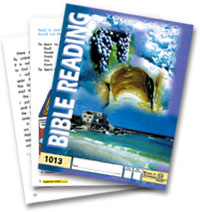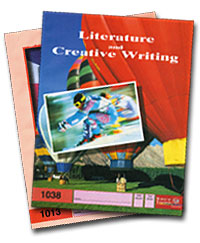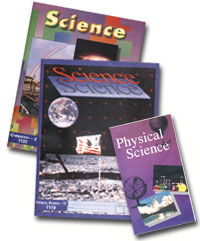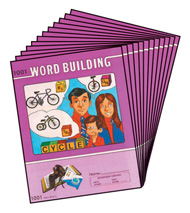Victory Life Christian School uses the A.C.E. School of Tomorrow® curriculum, a diagnostically individualised curriculum that allows each student to work at his or her own level of achievement, which may vary from subject to subject. It is a mastery-based curriculum, subdivided into three areas:
a. Core Curriculum – the six foundational disciplines of Mathematics, English, Word Building (Etymology), Literature & Creative Writing, Science, and Social Studies.
b. Reading Programs – students are trained to read at a rate of at least 500 wpm, using the online Readmaster® program.
c. Required Electives – to enhance the core curriculum. Students are also trained in typing skills, using the online Typemaster® program.
Graduates of this curriculum have been accepted into hundreds of colleges and universities around the world (for further reference, a partial list may be found here). Graduates of our school have enrolled in local universities (including NUS, NTU, SMU, SIM, NAFA, and La Salle) as well as universities in the United States, Canada, Australia, and the Philippines. A list of the universities our graduates have been enrolled in may be found here.
A.C.E. graduates have an advantage as they are trained to set and achieve goals, are more disciplined and independent, and as a result are more positive towards their workload. Read on below to find out more about how this course can help prepare your child to succeed in life. Also see the following pages (Next: link at the bottom of each page) for further details.
|
|
| School of Tomorrow |
|
|
A.C.E. School of Tomorrow® is a world class trend-setter in education. For more than 50 years, A.C.E. has offered professional expertise in curriculum, hardware, software, and in-service training for global Biblical educational reform.
The character-building effect of this extraordinary educational strategy, with its value-based, individualised, academic excellence, presents the answer to the global crisis in education. Using this concept of individualised learning, students don’t just get by – they get ahead!
The curriculum programme combines the traditional one-room school with completely individualised, diagnostically-prescribed high-tech learning.
Training is provided for educators in the distinctives of the A.C.E. curriculum. They are updated annually through seminars and conventions. The training focuses on wisdom, the chief distinctive of the curriculum. There are more than 7000 schools and thousands of home educators in more than 135 countries around the world.
|
|
|
| Curriculum Distinctives |
| |
Distinctives of the School of Tomorrow Curriculum:
•Bible-based instruction
•Academic excellence
•Individualised instruction
•Mastery-based learning
•Diagnostic testing
•Biblical values
•Computer enhanced learning
•Reasoning skills
•Character building
|
|
Reading … the doorway to Education
Believing that reading is the doorway to education, the programme offers several avenues by which they can learn to read or increase their reading ability. Conclusive studies demonstrate that children who are taught phonics learn to read better and faster than those who do not receive phonics training. A.C.E. incorporates the phonics method in all of its reading material.
|
|
|
| What is a PACE? |
|
|
School of Tomorrow® education has taken the conventional textbook and divided it into bite-sized, achievable worktexts called PACEs (Packets of Accelerated Christian Education). Each PACE is more or less equivalent to a unit in a textbook. Each grade level consists of 12 PACEs in each subject.
PACEs integrate character-building lessons into the academic content and are carefully designed to develop thinking skills and create mastery learning.
Students begin their PACE work by noting their goals, the concepts they will learn, a Bible verse, and a corresponding character trait. From the very beginning of each PACE they know what is expected and they assume the responsibility for their own learning.
Throughout the curriculum the introduction of new vocabulary words is controlled so that no word is used without the student first learning its meaning and pronunciation.
Full colour explanations and illustrations add excitement to each lesson, and innovative learning activities reinforce the interesting text material.
Each PACE contains Checkups which are mini-tests covering a section of the PACE. If mastery in an area is not achieved, the Checkup will reveal that weak area. Students can then take time to review and learn those concepts.
Upon completion of the activities and Checkups, students prepare to take the Self Test, a practice test. Here students evaluate themselves to determine readiness for the PACE test. When the Self Test is successfully completed, the student hands in the PACE and takes the PACE Test the next school morning.
The PACE Test objectively measures each student’s mastery of the material. Since 1970, PACEs have proven to be effective tools for goal setting and achieving academic excellence.
|
|
|
| 90 Character Traits |
|
•Affectionate
•Appreciative
•Attentive
•Available
•Blessed
•Cheerful
•Committed
•Compassionate
•Concerned
•Confident
•Considerate
•Consistent
•Content
•Cooperative
•Courageous
•Courteous
•Creative
•Decisive
|
•Deferent
•Dependable
•Determined
•Diligent
•Discerning
•Discreet
•Efficient
•Equitable
•Fair
•Faithful
•Fearless
•Flexible
•Forgiving
•Friendly
•Generous
•Gentle
•Godly
•Goodly
|
•Gracious
•Grateful
•Happy
•Holy
•Honest
•Humble
•Integrity
•Joyful
•Just
•Kind
•Knowledgeable
•Longsuffering
•Loving
•Loyal
•Meek
•Merciful
•Modest
•Obedient
|
•Observant
•Optimistic
•Orderly
•Patient
•Peaceful
•Perseverant
•Persuasive
•Prayerful
•Prepared
•Prudent
•Punctual
•Pure
•Purposeful
•Ready
•Rejoiceful
•Resourceful
•Respectful
|
•Reverent
•Righteous
•Secure
•Self-Controlled
•Sincere
•Steadfast
•Submissive
•Tactful
•Temperate
•Thorough
•Thrifty
•Tolerant
•Trustworthy
•Truthful
•Understanding
•Virtuous
•Wise
•Zealous
|
|
| Student Convention |
| |
Each year A.C.E. hosts conventions for students aged 11 years and older. Students can select from over 130 events in five exciting categories, including Music, Speech/Drama, Athletics, Art/Craft and Academics.
The purpose of the Conventions is to give young people opportunities to develop leadership skills. God’s Word states that Christian youth should not only be different from the world, but should also set a standard of excellence. The conventions are challenging, inspirational and fun-filled. Students will benefit from participation in the Convention as the preparation and competition help develop skills and attitudes that will prepare them for life.
|
International Student Conventions
|
|
First and second place winners at Regional Student Conventions are nominated to go to the International Conventions in the United States, where approximately 3000 delegates from around the world gather to compete in events in which they have been placed. This premier event showcases the most talented performances from around the world and is an experience of a lifetime.
|
|
|
|
| Graduation |
| |
A.C.E. offers a wide range of courses for students to choose from. The school staff assist the students with their subject choice.
Frequently asked questions:
Q: What type of Certificates can students earn?
A: American High School Diploma with Honors, College Preparatory, General and Vocational Preparatory Diploma.
Q: Do A.C.E. graduates do matriculation examinations?
A: A.C.E. graduates do not sit state based education exams but can obtain Tertiary entrance with a High School Diploma and SAT or relevant equivalent.
Q: What is SAT?
A: The SAT (Scholastic Aptitude Test) is designed to measure a student’s academic ability to perform at University level.
Q: Do A.C.E. graduates qualify to study at tertiary institutions?
A: A.C.E. graduates currently attend many Universities and colleges worldwide.
Q: How well do A.C.E. graduates adjust and cope at University?
A: A.C.E. graduates have an advantage as they are able to set and achieve goals, are more disciplined and independent and, as a result, are more positive towards their workload.
|
|
|
| Staff Training & Qualifications |
| |
The curriculum focuses specifically on the student learning rather than the teacher teaching. Teachers or educators are referred to as Supervisors and classrooms are referred to as Learning Centres. Qualified educators are assisted by paraprofessional administrative assistants (Monitors).
In addition to their academic qualifications, staff members complete the A.C.E. Professional Staff Training Course run by School of Tomorrow® or their representative. They will also attend conferences to learn educational reforms, share ideas and sharpen their focus on Christian Education and the use of the curriculum. Reference to the School of Tomorrow Procedural Manual is required of all staff.
|
|
|
|
Next: Program


